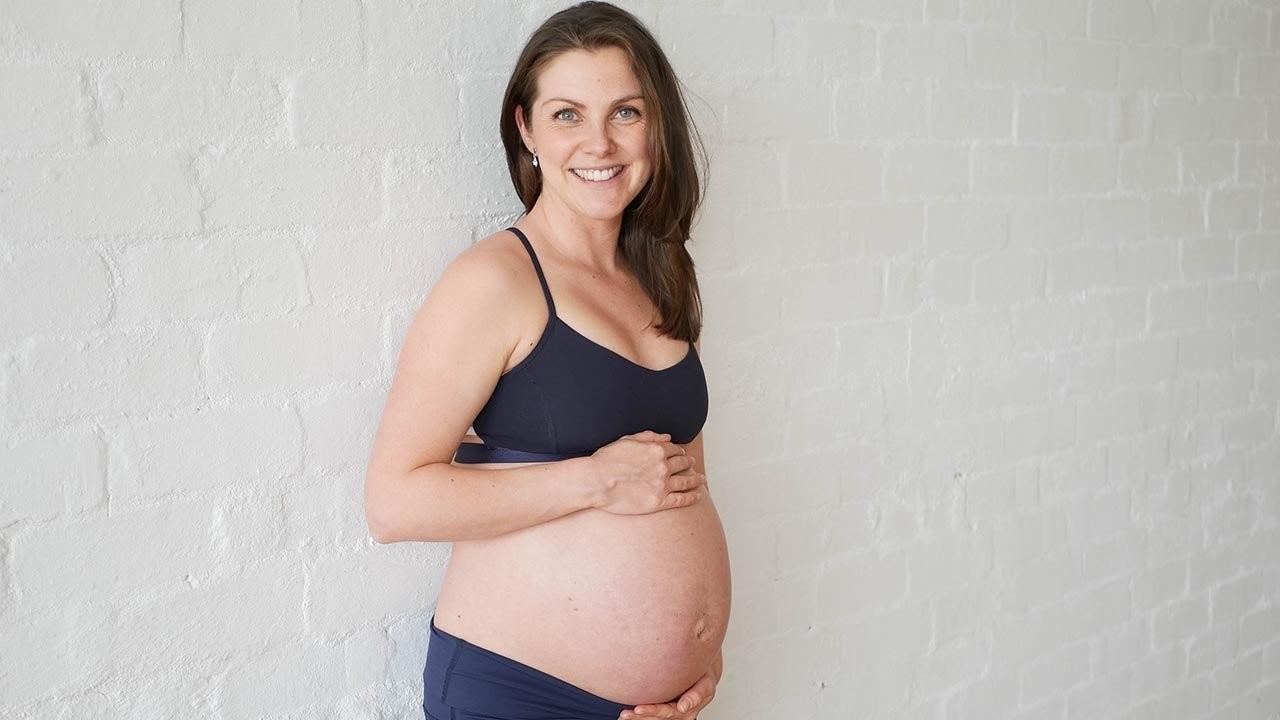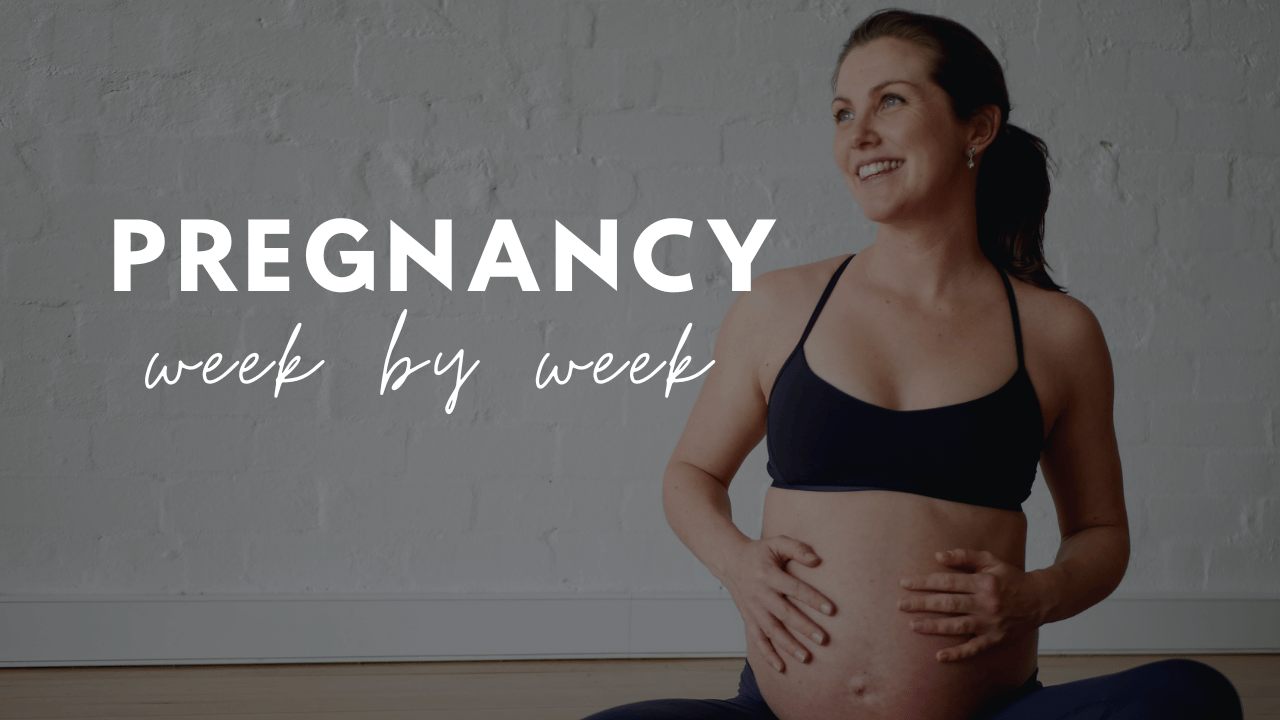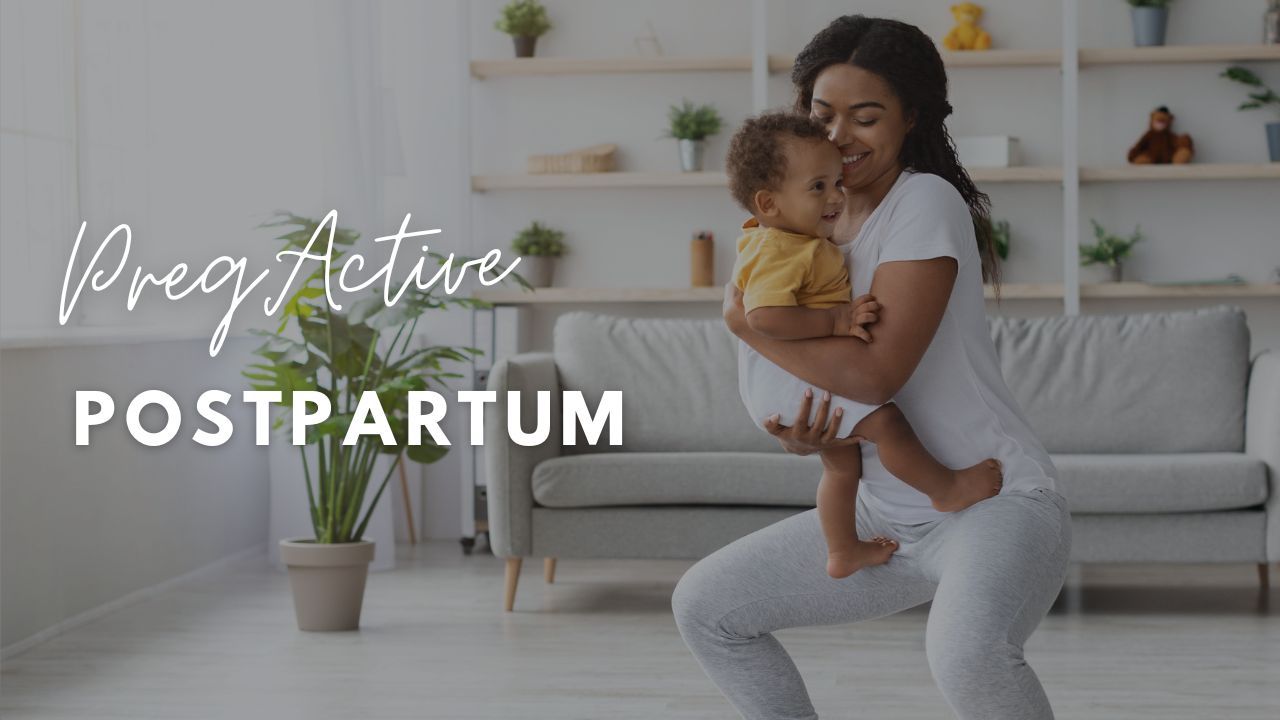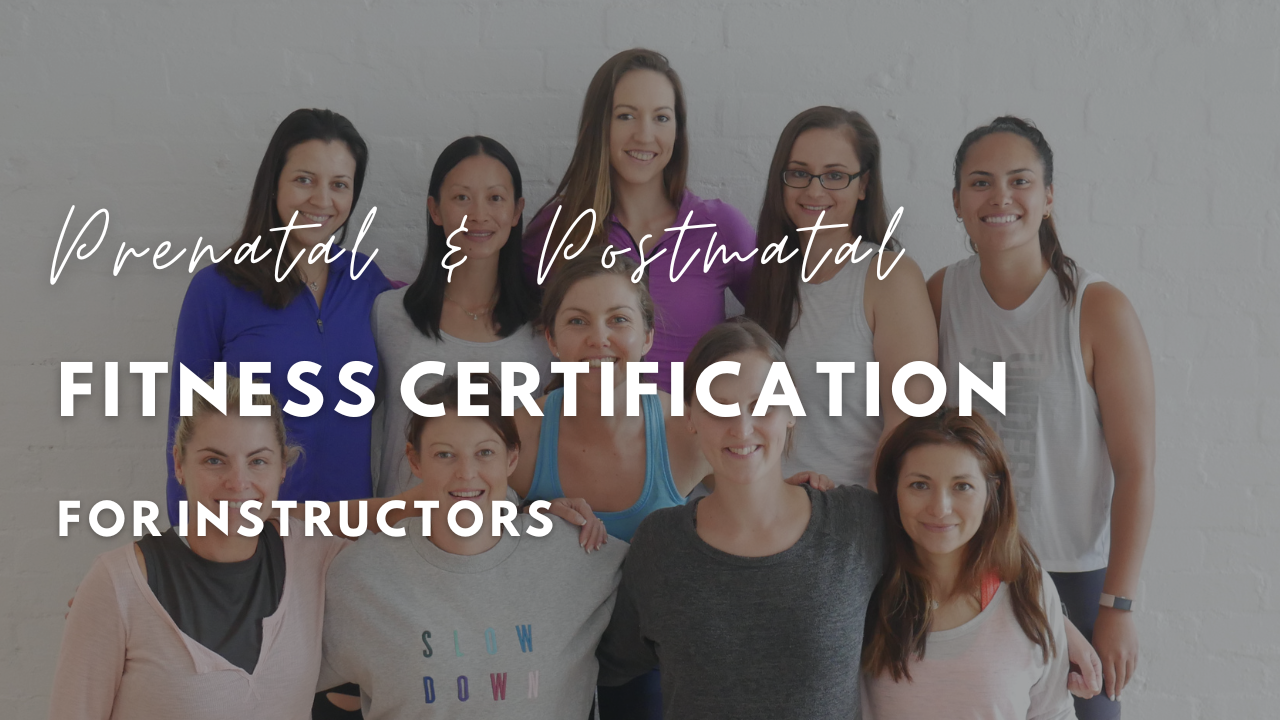Can I Do Planks While Pregnant?

Can I Do Planks While Pregnant?
Many women continue to perform planks while pregnant. And I often get a lot of questions from our PregActive mamas with regards to planking during pregnancy so I want to share my thoughts and advice with you.
As you will see, I am not a big fan and here's why.
When performing planks during pregnancy, you run the risk of injuring your back due to the strain the baby's weight can put on your body.
Not to mention, there is a lot of strain place upon your back even if you're not pregnant.
When pregnant, you will be experiencing a wide range of body changes. Some are just inconvenient, while some significantly impact on your health and daily functioning.
Let's not create additional unwanted issues by performing planks!
Look, let's face it. We all want great abs.
Toned, perfect abs. And when we think abs, we think planks and crunches. Right?
Well, I'm here to tell you otherwise.
Because when it comes to pregnancy and postpartum, planks and crunches are not your friends. And to be honest, they are your abs worst enemies.
You see, your abs (your six pack muscle in particular), gets stretched because of your growing baby.
So then, if you put unnecessary pressure - and you don't regulate it through correct core activation - then you end up with abdominal separation.
Why Planks Can Be Risky
1. Coning / Doming
If your belly forms a cone shape down the midline during a plank, it means too much intra-abdominal pressure which increases diastasis recti risk.
2. Core Overload
Holding a plank too long fatigues the core, forcing compensatory muscles (back, shoulders) to overwork.
3. Pelvic Floor Strain
Bearing down (instead of lifting) can weaken pelvic floor due to incontinence or prolapse.
4. Blood Flow
Long holds in prone or side positions may cause discomfort or dizziness.
Safe Plank Variations
1. Wall Plank Stand facing wall
2. Inclined Plank Hands on couch or bench
3. Knee Forearm Plank Forearms on mat
4. Side Plank (Modified) On knees and forearm
5. Quadruped Hover On hands and knees
Diastasis Recti
Diastasis recti of the abdominis muscles (#DRAM) is basically where the linea alba (the connective tissue that keeps the rectus abdominis connected) thins and widens.
Now, it's not as scary as it seems.
It's not your abs breaking.
But it's certainly not something you want to ignore. Because if you don't acknowledge it and help correct it postpartum, you can end up with:
1. Protruding belly
2. Loose droopy skin around your belly button
There's no need for this to affect you and your body confidence.
There are ways to recovery (and even in pregnancy to reduce it worsening), and it's exactly why I'm here.
Don't be ashamed of your beautiful belly postpartum.
And don't suffer through back ache and forever feeling bloated.
Let's modify where we need to, let's progress your strength the right way and let's get you feeling fab.
Because you deserve to Mama!
So these plank modification are in order, and make sure you master them in that order. No skipping ahead, it doesn't work that way.
1. All fours
2. All fours with arm extension
3. With arm and leg extension
4. Bear holds
5. Holds with toe tap
6. Bear holds with leg extension
7. Kneeling plank
Remember it's all about the right core connection, which is exactly what I teach you in my Online PregActive Studio.
Core Training
Core training is one of the most important things you can do for your health during pregnancy.
Having a strong core can help relieve back and pelvic pain. It will help you as you enter your third trimester and prepare for childbirth. It can help you have a more comfortable pregnancy. It is also beneficial as you enter postpartum recovery.
Unfortunately, there seems to be a lot of conflicting and confusing information out there on planking during pregnancy.
As a result, too many pregnant women are sustaining unnecessary back injuries as a result of poor advice regarding their prenatal workouts.
Core Activation during Pregnancy
What Happens to Ab Muscles when Pregnant?
When pregnant, your abdominal muscles will go through a lot of stretching to accommodate your growing baby. So, can you do anything to keep them in shape and speed recovery after childbirth?
Yes, you can but planking is not recommended.
Well, some people online do, but after teaching prenatal exercise classes for ten years I know what works and which exercises should be avoided. And planking is never an exercise I endorse whether you are pregnant or not.
Are Abdominal Exercises Safe during Early Pregnancy?
Exercising your abs during pregnancy has lots of benefits, including reduced risk for back pain and potentially even a speedier labor. So each week I include guided, but safe, core exercises into your workouts.
Unless your doctor has restricted how or when you exercise during pregnancy, most abdominal exercises, with some modifications and exceptions (planking), are safe in early pregnancy.
What Happens to Your Abs during Pregnancy?
What you first notice is your baby bump. Then you will likely notice an accentuated ridge that runs from the bottom of the breast bone down the middle of the belly which is called diastasis recti.
It sometimes widens by a few centimeters as your baby grows and puts tension on the area.
Women who are carrying multiples or have already been through several pregnancies are particularly prone to separation.
Is it safe to do ab workouts when pregnant?
Yes with your doctor's approval, it's safe to exercise your abs throughout each week of your pregnancy with the proper modifications. And that is the key point here - modifications!
The way you exercise in your first trimester is not how you exercise in the third trimester.
Strengthening your abs during pregnancy supports your pelvic organs as your baby bump grows.
Strong abs can also alleviate pressure on your back and support proper posture to help prevent pregnancy back pain.
A strong core will help you during childbirth and encourage a speedier recovery after childbirth.
Ab Exercises to Avoid during Pregnancy
There are lots, which is why your best option is to follow a guided prenatal exercise routine that has been created by a prenatal exercise specialist.
You need to avoid full sit-ups and double leg lifts as they put more pressure and pull on the abdomen. And also avoid moves that involve contortions or bending over backward.
After you've reached the end of your first trimester, avoid doing any exercises (like crunches) while lying face-up on your back.
What happens to your abs after pregnancy?
You will likely experience ab separation. If you do have a abdominal separation in your ab muscles, it can take many months after delivery for this opening to close.
Misleading Information on Planks when Pregnant
If you are extremely fit, and already have a very strong core, then most people don't have a problem with planks.
But if your pregnant, or if you lack core strength, then it will be your back that burdens a lot of the weight.
Quite simply, there are many other safe core strengthening exercises you can do instead of a plank.
Side planks are safer when your belly is really starting to pop, plus they're a great way to work your obliques.
Holding your abs in tightly can create issues in your core.
It can negatively affect how you breathe by not allowing your lungs and diaphragm to fully expand and contract.
This may also apply added pressure downward onto your pelvic floor. It can also cause tension in the upper back, shoulders, and neck.
When you're holding your belly in tightly for long periods of time, the pressure is displaced above and below.
Planks are Uncomfortable
For many pregnant women late in their second trimester and third trimesters, front planks can feel uncomfortable.
You see, while in a front plank, you will start to feel like your belly is unsupported. Like it's hanging down and out.
You may also feel a pulling sensation on the abdominals.
When in this face-down position, the weight of the baby, extra fluid, and your internal organs create a lot of extra stress on the front side of the abdominal wall.
This position can exacerbate that abdominal separation.
Avoid Intra-abdominal Pressure
Planks can cause excessive intra-adominal pressure, which can cause damage and strain to the deep core, including your pelvic floor.
Please avoid movements like planking during pregnancy. Your pregnancy is only temporary but the damage can be long term.
Core Strength During Pregnancy
Maintaining core strength during pregnancy is not only beneficial for carrying the growing weight of the baby, but it also helps in reducing back pain, improving posture, and preparing for labor and delivery.
A strong core can provide the necessary support for the spine and pelvis, which is especially important as the body's center of gravity shifts.
Additionally, having a robust core can aid in a quicker postpartum recovery.
Your Entire Core
It's crucial to remember that core exercises during pregnancy aren't solely about maintaining abdominal muscles.
Instead, they encompass the entire trunk, including the pelvic floor, hips, and back.
Strengthening these areas can lead to a more comfortable pregnancy and a more controlled birthing process.
Guidelines for Core Exercises
The approach to core exercises can change with each trimester. During the first trimester, most women can continue their pre-pregnancy exercise routine.
However, as the pregnancy progresses, it's important to avoid exercises that involve lying flat on the back or could risk abdominal trauma.
In the second trimester, focus shifts to avoiding exercises that can cause diastasis recti, a separation of the abdominal muscles.
The third trimester calls for further modifications to reduce pressure on the vena cava and to accommodate the larger belly.
Regardless of the trimester, all exercises should be performed with caution, and expectant mothers should consult their healthcare provider before starting or continuing any exercise routine.
It's also recommended to work with a prenatal fitness professional who is experienced in prenatal exercise to ensure safety and proper technique.
Best Safe Core Exercises
Some of the safest and most effective core exercises for expectant mothers include pelvic tilts, standing crunches, and side-lying leg lifts.
These movements focus on strengthening without putting undue strain on the abdomen or back.
Planks can also be safe when done with modifications such as keeping the knees on the ground or using an inclined surface to reduce the intensity.
Moreover, exercises like bird-dogs, modified prenatal yoga poses such as cat-cow, and gentle prenatal Pilates movements are also excellent for engaging the core while keeping the body aligned and balanced.
Water aerobics and swimming are also fantastic for expectant mothers as the water provides both resistance for muscle building and support for the joints.
Modifications to Popular Core Exercises
To accommodate the unique needs of a pregnant body, many popular core exercises require modifications.
For instance, traditional crunches can be modified to standing oblique crunches to prevent lying flat on the back.
Instead of doing a full plank, one can perform an incline plank using a sturdy surface like a bench or wall. This reduces the pressure on the abdominals and still engages the core muscles.
Use a Stability Ball
Expectant mothers should also consider using stability balls for seated and supported exercises to maintain balance and reduce the risk of falling.
Using resistance bands for gentle resistance training instead of free weights can also be a safer option to maintain core strength during pregnancy.
Listening to Your Body
It's essential for expectant mothers to listen to their bodies and recognize signs that they should modify or stop an exercise.
Some warning signs include dizziness, headache, chest pain, muscle weakness, and any form of pain or discomfort.
If regular activities cause shortness of breath or exhaustion, it may be necessary to decrease the intensity or duration of exercise.
Additionally, pregnant women should watch for signs of preterm labor or any fluid leakage that could indicate a complication.
It's critical to stop exercising immediately if any unusual symptoms occur and consult with a healthcare provider.
Above all, the safety of the mother and baby is paramount, and exercise should never compromise their well-being.





